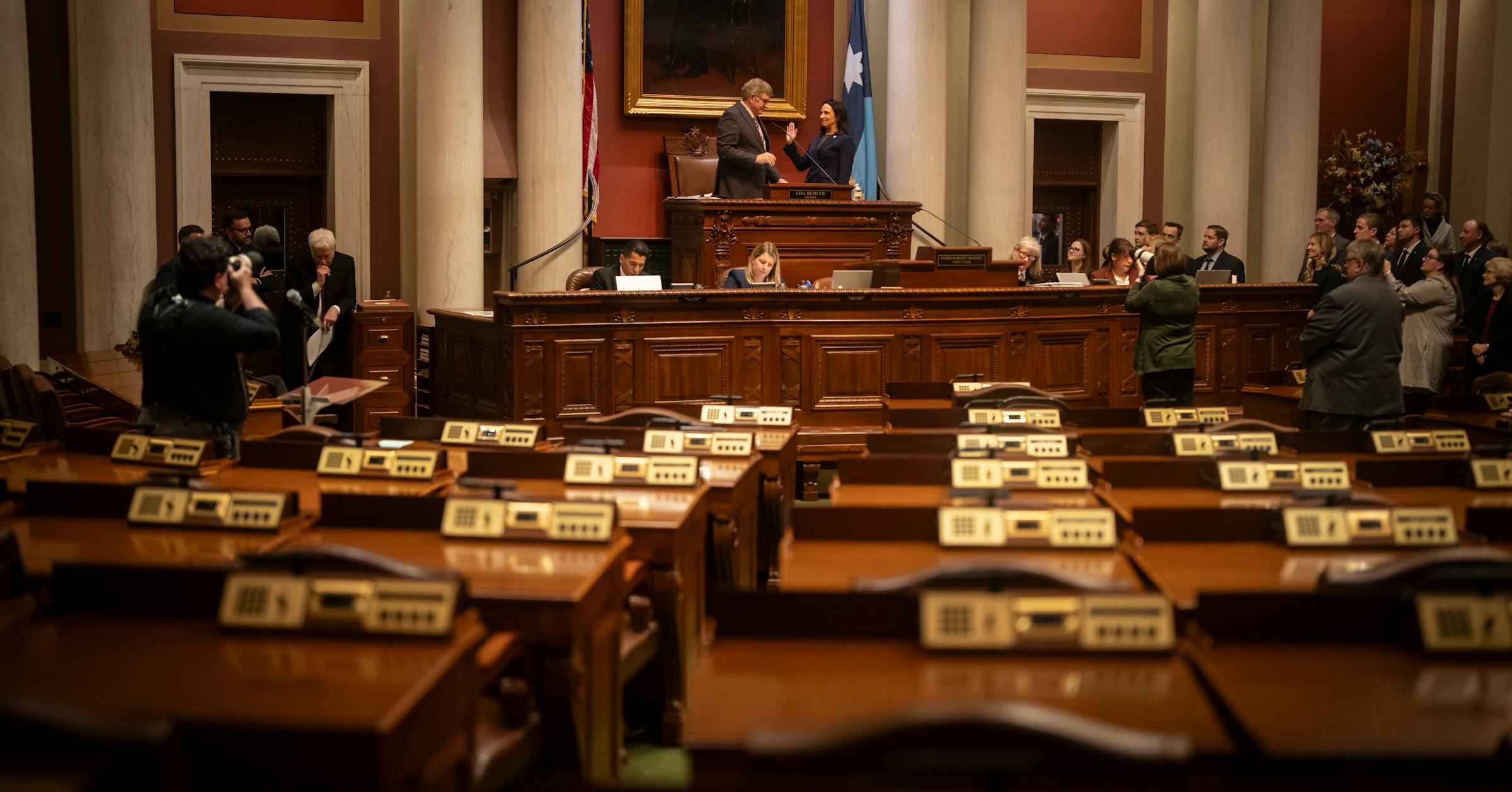“`html

Fact Check Analysis: Minnesota Democrats Sue House Republicans Over ‘Unlawful’ Session
Submitted by a DBUNK subscriber for verification—a free service we offer to empower our community to combat misinformation.

Preliminary Assessment
The article published on January 16, 2025, by Briana Bierschbach on the Star Tribune addresses a legislative dispute in Minnesota between Democrats (DFL) and Republicans. While the piece provides an overview of the events, including lawsuits and assertions from both sides regarding quorum rules, it contains missing context and lacks clarity regarding legal precedents and the broader implications of the constitutional arguments made.
Key Areas of Misinformation, Bias, or Missing Context
1. Misrepresentation of “Unlawful Actions”
The article cites a statement by House DFL Leader Melissa Hortman, who describes the Republican actions as “unlawful” and “unconstitutional.” However, the author does not clarify that these claims are subjective and hinge upon legal interpretations of state quorum rules. While the article mentions that quorum disputes center on whether 68 members are needed, it fails to provide sufficient context about Minnesota’s constitutional guidelines or to cite independent legal experts who could explain whether a one-member shortfall negates the legitimacy of actions such as electing a House Speaker. This omission leaves readers without a clear understanding of the legal complexities involved.
2. Incomplete Explanation of Historical Precedents
The article implies that this situation is “unprecedented” by quoting Democrats but does not fact-check this claim. DBUNK research reveals that Minnesota’s legislative history includes multiple instances of disputed quorums, though none of these exact circumstances. By neglecting to mention this context, the article risks leading readers to believe that such disputes are uniquely “extreme” or unprecedented, potentially skewing public perception.

3. Lack of Neutrality in Framing
This piece quotes Democrats extensively, casting Republicans as aggressors—e.g., “Republicans are going to extreme and unprecedented lengths to seize power.” However, it provides minimal insight into the Republican perspective other than procedural justifications (e.g., their claim that their 67-66 majority allows them to act). While direct quotes from GOP leadership are valuable, the article omits any nuanced discussion of the potential motives or strategic reasoning behind their legislative actions. The imbalance in narrative framing may inadvertently contribute to partisan bias.
4. Missing Financial and Strategic Impact Analysis
The article omits any discussion of how the legislative paralysis resulting from this dispute—and the upcoming special election in Roseville—might financially, administratively, or operationally impact Minnesota residents. For instance, critical legislative business like budgeting may be delayed indefinitely if the Supreme Court sides with Democrats, pending a quorum resolution. Readers are likely to question how such disputes could hinder legislative progress, but this topic is left unaddressed.
How Will the Supreme Court Ruling Affect Progress Before the Roseville Special Election?
If the Minnesota Supreme Court sides with the Democrats, declaring the GOP’s actions invalid, it will likely halt most legislative processes until the vacant Roseville-area seat is filled on January 28. Key functions—such as passing bills or even routine clerical housekeeping—would stall because a 67-member House cannot meet the constitutional quorum threshold of 68 members for certain duties. This power vacuum could impede bipartisan collaboration and inflame public frustration over perceived dysfunction in the legislature.
The Republican actions to elect leadership and structure committees would also be invalidated, forcing both sides to regroup and negotiate terms for conducting business. Such a ruling, coupled with subsequent legal battles or procedural maneuvering, would likely exacerbate already high tensions between the two parties, deepening mistrust within the chamber. Given that one of our subscribers specifically asked how this might affect progress, recognizing these possible implications is vital for understanding the long-term consequences of this dispute.

Conclusion
This article sheds light on emerging tensions in Minnesota’s House of Representatives but falls short when it comes to providing balanced perspectives, contextual legal analysis, and a clear assessment of historical precedents. This gap may leave readers misinformed or uncertain about the broader implications of the events described.
DBUNK remains committed to tackling misinformation across political divides. If you’re tired of conflicting narratives and want a trusted resource to uncover the truth, stay connected by downloading our upcoming app and following us on social media.
Read the original article for reference: Minnesota Democrats Sue House Republicans Over ‘Unlawful’ Session
“`

